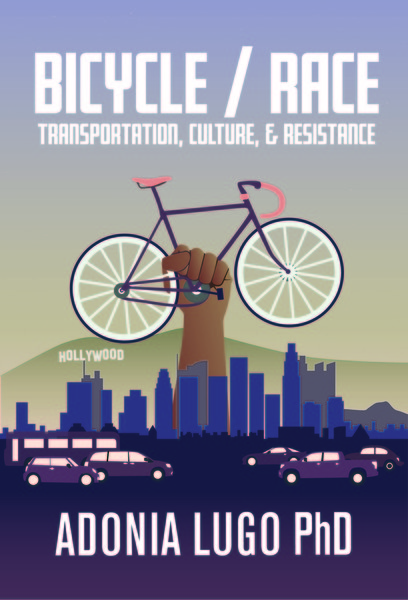I read a few "ladyblogs," primarily xoJane and Jezebel. If I click on a post, I usually read the comments, too. When the topic of bikes comes up, there's always a mini-war in the comments between people who despise "bike hipsters" (read: entitled, privileged jerks who think they own the road) and people who actually ride bikes. Commenters trot out their most extreme stories of negative interactions they've had with people on bikes, sometimes concluding with things like "FUCK BIKING HIPSTERS I HOPE A BUS HITS YOU."
These are the same websites that promote things like fat acceptance and anti-bullying campaigns. Why are bicyclists portrayed as inhuman creatures unworthy of sympathy, dismissing an incredibly diverse world of practice (bicycling) because of the stupid behavior of a few jerks? And, this is the thing that really confuses me, why do people find jerk bicyclists so harmful to society when they constantly interact with motorists who run red lights and stop signs, use infrastructure like traffic circles in dangerous ways, talk and text in the car, drive without looking from side to side when entering intersections, and engage in other dangerous behaviors that kill people every day?
I asked a few of my friends, one a bicyclist and one less inclined to the bicycling arts, what they thought about this phenomenon. Both responded that it's because you can see a bicyclist's face, whereas it's easier to think of a motorist as a car. The interactions with bicyclists stick out in people's minds, and maybe they feel more personally insulted by the face-to-face flouting of laws. I think it's also because we've trained ourselves to think of driving as passing through an obstacle course rather than moving through a social space. Cars that do dumb stuff are a nuisance, but they do not interrupt the illusion until there's an actual crash. Bodies that do dumb stuff are a threat to the idea that driving is a no harm, no foul activity. You might actually hurt someone!
Getting sensitized to this fact has made driving a lot more harrowing for me than it was when I was an Orange County teenager. I spent a lot of time in my car, especially when I was home from college in the summer of 2002, since I didn't have much space at my mom's house and I was working as a pizza delivery girl. I thought of the interior space of my car as a private world where I could listen to music and the exterior of my car as an identity statement, putting on bumper stickers and gluing astroturf racing stripes to the roof. The car was a mobile place. I didn't think much about the people outside my car, except for always locking my doors. Now when I drive, I think of myself as operating a dangerous and unwieldy mass of metal.
So, when I hear people who regularly operate dangerous and unwieldy masses of metal characterize people outside of those masses of metal as objects of hate, I can see that there's some car culture discipline going on. People who act like jerks behind the shelter of a windshield may also be despised, but they don't seem to come up as much. Driving is the norm, and doing something different gets policed as deviant. But what about when the people complaining are pedestrians who feel harassed by bicyclists? I wonder if they feel as harassed by motorists, and, if not, if maybe it's because they know what it's like to drive but they don't know what it's like to bike. Maybe they have sympathy for drivers, but not for bicyclists.
All this has made me think about the impact that our everyday interactions have on our worldviews. There just ain't no denying that driving is a deadly mode of transport, and yet the statistics seem to influence people's perceptions of safety less than their individual experiences of bike jerks. I'd say that bike jerks should stop being such jerks, but a) being a self-righteous turd is clearly part of the fun for some people on bikes, and b) what makes a "bike jerk" is totally subjective in a country where many motorists have no clue that bicyclists can use streets just like they do. And, as this piece on xoJane points out, trying to ride a bike, even in a bikey city, might reinforce negative views of bicycling. So the real point to me is that people who don't know what it's like to ride a bike should try talking to some people who do ride bikes, and maybe going for a ride with them to see what it's all about. Hopefully positive engagement with bicyclists can have as much of an impact as negative engagement does.

